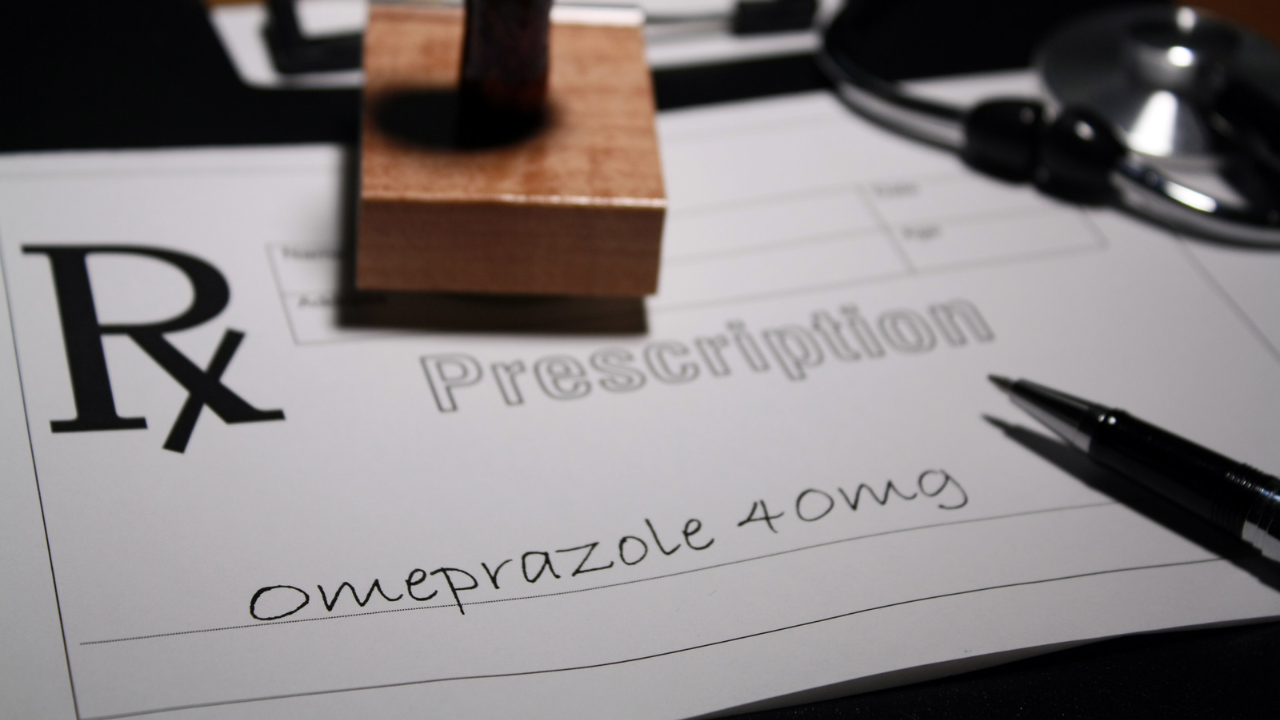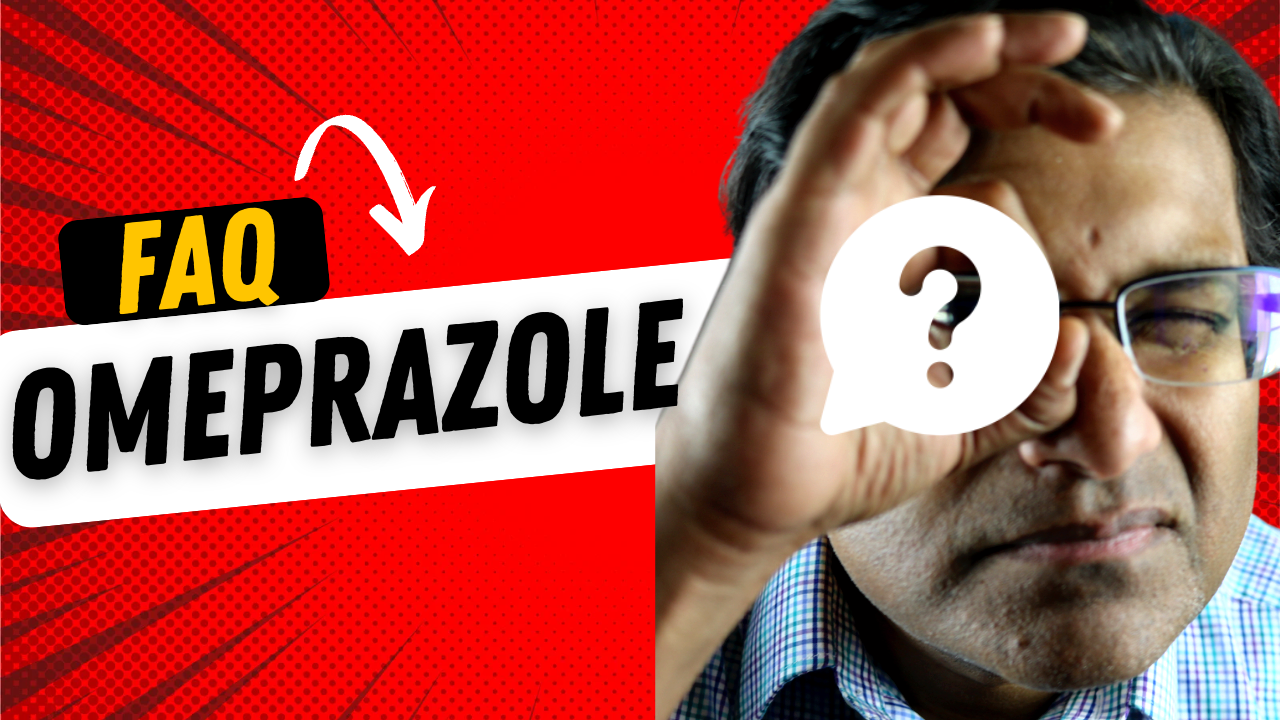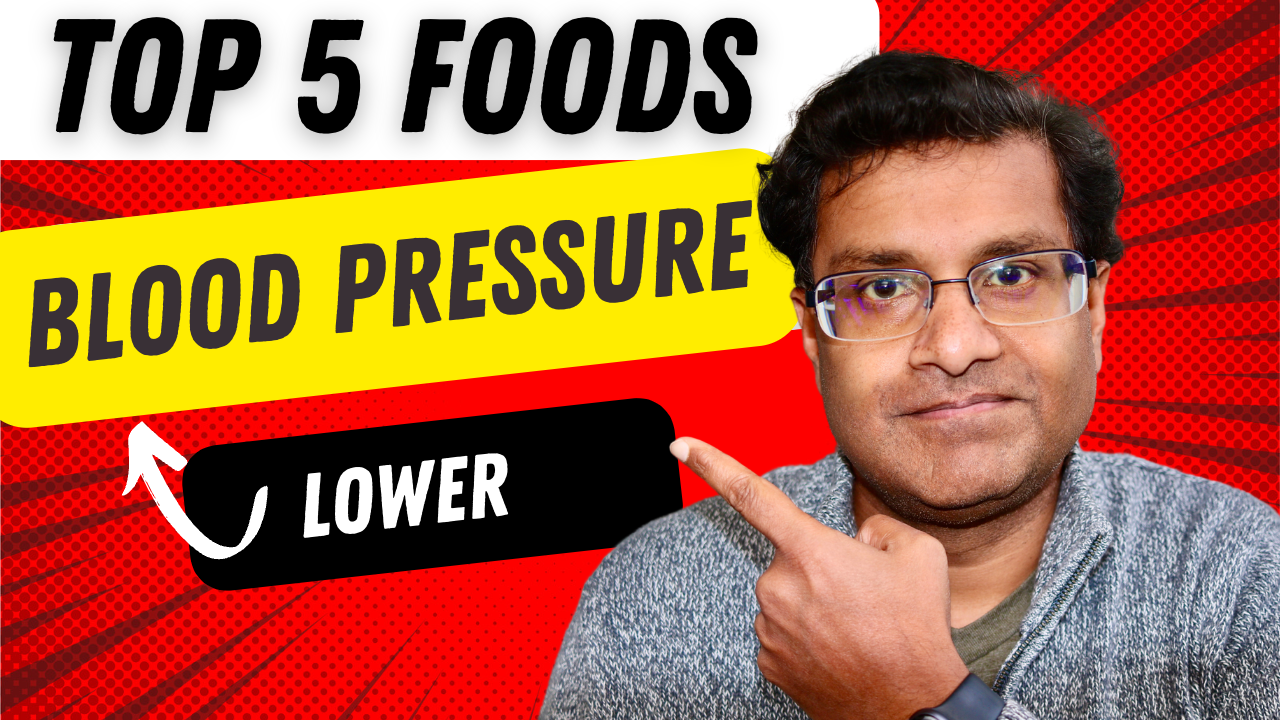- My stomach hurts.
- I feel nauseous. I have heartburn.
- Your health care provider might have started you on Omeprazole to help deal with these symptoms.
- This article will look at the 12 most FAQ about Omeprazole coming up.
1.What is Omeprazole (Prilosec)?

Omeprazole belongs to a family of medications called a proton pump inhibitors. PPI for short (PPI). Omeprazole reduces the amount of acid in your stomach. The brand name is Prilosec.
2.What is it used for?
It is used for up to 4-6 weeks to treat heartburn and other symptoms that happen with gastroesophageal reflux disease (GERD).
GERD happens when acid in your stomach backs up into the tube (esophagus) that connects your mouth to your stomach. The most common symptoms associated with GERD are burning in your chest or throat, burping or sour taste.
What are other disease entities can Omeprazole be used for?
 For up to 8 weeks to heal acid-related damage to the lining of the esophagus (also called erosive esophagitis).
For up to 8 weeks to heal acid-related damage to the lining of the esophagus (also called erosive esophagitis).- For up to 8 weeks for healing stomach ulcers.
- For up to 8 weeks for the healing of duodenal ulcers. The duodenal area is the area where food passes when it leaves the stomach. These ulcers are sometimes associated with long term use of NSAIDS.NSAIDS can irritate your stomach lining and duodenum lining.
- With certain antibiotics to treat an infection caused by bacteria called H. pylori to help eradicate this bug. The infection needs to be treated to prevent the ulcers from coming back.
- For the long-term treatment of certain conditions where your stomach makes too much acid such as a rare condition called Zollinger-Ellison Syndrome.
- It is also used of label to treat Barrett’s esophagus is when the inner lining of your esophagus gets damaged by acid reflux. The starting dose here would be 20mg daily and the current recommendations is to take the Omeprazole long term
3.How does it work?
Acid is produced by Proton pumps in your stomach. Omeprazole works by turning off and blocking these pumps thus reducing acid production in your stomach.
4.How should I take the drug?
- Take the drug exactly as prescribed by your provider.
- Do not change your dose or stop PRILOSEC without talking to your doctor, I’ll explain why later in this video.
- Take Omeprazole at least 30-60 minutes before breakfast.
- Swallow Omeprazole capsules whole. Do not crush or chew Omeprazole Capsules.
- If you have trouble swallowing PRILOSEC Capsules, you can carefully open the capsule, mix the pellets with a tablespoon of applesauce, and swallow with water.
5.When does Omeprazole start working?
It starts working within an hour of dosing, with the maximal effect occurring within 2 hours. It can last up to 72 hours.
6.How long will it take to restore my gastric acid level after stopping the medication?
Acid levels return to previous levels within 3 to 5 days of discontinuation.
7. Can I stop the drug without my doctor knowing?
 Do not STOP Omeprazole or any other PPI without talking to your provider. What might happen is that you might get Rebound acid hypersecretion (RAHS). In RAHS there is a recurrence of symptoms after stopping PPI therapy due to an increase in gastric acid secretion even above pre-treatment levels.
Do not STOP Omeprazole or any other PPI without talking to your provider. What might happen is that you might get Rebound acid hypersecretion (RAHS). In RAHS there is a recurrence of symptoms after stopping PPI therapy due to an increase in gastric acid secretion even above pre-treatment levels.
Omeprazole should be prescribed at the lowest dose and for the shortest duration for the specific medical condition. It was never intended for lifelong treatment.
If you have been treated for a longer period, mind you this is not clearly defined and can be 2-6 months, your health care provider should consider tapering the dose of this medication. There are, as mentioned earlier in this article, certain disease entities where long-term maintenance treatment will be considered by your healthcare provider.
8.. What other drugs can affect Omeprazole?
There are several drugs which can interact with Omeprazole.
This list is by no means exhaustive. Here are some examples:
- Clopidogrel- Omeprazole can decrease the activation of this drug
- Antibiotics- such as Clarithromycin, Rifampin or Amoxicillin
- Antifungal medications
- Methotrexate- drug used for certain rheumatological & immunological conditions
- Phenytoin (an anti-seizure medication)
- Diazepam (also known as valium)
- St. John’s Wort
- A blood thinner called Warfarin
9.What are common side effects?

- Abdominal pain (5%)
- Nausea or vomiting (3%)
- Bloating (3%)
- Constipation (2%)
- Diarrhea (4%)
- Headache (7%)
- Skin rash (2%)
10.What are serious side effects, especially with long term use!!
If you have any of the following side effects tell your doctor right away!
Symptoms such as unusually fast heartbeat or slow heart beat or even palpitations, muscle spasms that don’t go away , seizures – all of these could be indicative of a low magnesium level. In fact, a very low magnesium level could lead to condition called Torsade’s de pointes which can be fatal.
If you have a rash on cheeks and nose, joint pain that is getting worse- these could be signs of lupus.
Tell your doctor right away if you develop the following symptoms: persistent diarrhea, abdominal pain or cramping, fever, blood in your stool.
This medication may rarely cause a severe intestinal condition.
- The intestinal condition is called C Diff Colitis due to a type of bacteria.
If you develop the following symptoms such as unusual weakness especially of the lower extremities, sore tongue, or numbness/tingling of the hands/feet all of these could be signs of B12 deficiency…. Especially if you use proton pump inhibitors (such as omeprazole) daily for a long time (more than 3 years).
You may have symptoms such as rash, itching swelling of the mouth, tongue and face, difficulty breathing and swallowing all of these could be signs of an allergic reaction. Get medical HELP right away.
Long term PPI use can decrease bone density (also called osteoporosis). The FDA has warned about possible increased risk of fractures of the hip, wrist, and spine.
Long term PPI use has a been associated with an increased risk of incident chronic kidney disease (CKD), CKD progression, and end-stage kidney disease. However, how this happens is not known. Further studies are needed.
PPIs can cause acute interstitial nephritis (AIN). Signs are usually fever, rash, blood in the urine and confusion. You treat this condition by stopping Omeprazole, the offending medication.
This is not a complete list of possible side effects. All drugs may cause side effects. There will be always some people who have no or only mild side effects. Others may have moderate to severe side effects leading to discontinuation of their medication. If you do have side effects, talk to your health care provider for next steps and advice.
11.USE of Omeprazole and PPIs in older adults:
Current recommendation in older adults is to avoid scheduled use for > 8 weeks unless for high-risk patients or patients with certain medical conditions such as erosive esophagitis, Barrett’s esophagitis for example. Especially in older adults there is an increased risk for fractures and C.Difficile associated Colitis.
Although some studies have found an association between use of PPIs and dementia, others have not found an association between PPI use and cognitive function dementia and is discussed in detail, separately. Jury is still out.
12) Can Omeprazole cause small growths in the stomach?
If you have been on Omeprazole for a long time, you have the risk of growing a small growth in the stomach. Medically we refer to these growths as gastric polyps. They are reversible and are most often asymptomatic. Take Omeprazole only for the recommended time suggested by your health care provider related to your specific condition.
If you are interested in seeing the YT video, click right here.
Have a good day and Think your Health!
Sources:
1)https://www.fda.gov/about-fda/







